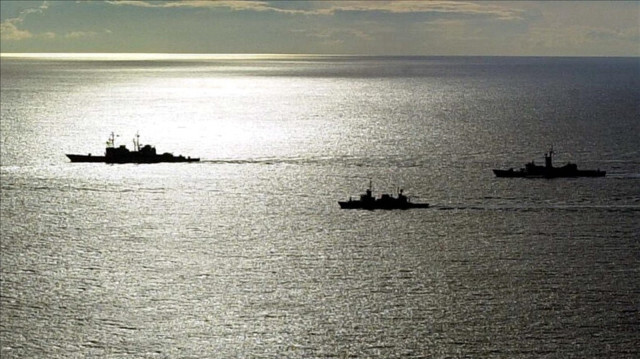

File Photo
Agreement to make ‘easier’ to confront ‘common challenges’ in territorial disputes in South China Sea, says Philippine president
Philippine President Ferdinand Marcos Jr. Thursday said the maritime agreement with Vietnam will bring "stability" in the disputed South China Sea.
The statement came during a farewell call by Vietnam's outgoing Ambassador Hoang Huy Chung in Manila, according to a statement from Marcos' office.
“Now that we are going to start discussions on the agreement that we have between the Philippines and Vietnam, I think it is a very, very important – it will be a very, very important part of our relationship and it will bring an element of stability to the problems that we are seeing now in the South China Sea,” Marcos said.
Addressing the departing Vietnamese ambassador, Marcos said that the agreement marks "a very big step" in the relationship between the two Southeast Asian countries.
Chung thanked Marcos for cooperation by the Philippines "regarding shared interests in the West Philippine Sea and for preventing incidents in Philippines waters."
Marcos also said that both countries have a "good solid" agreement which is in favor of the two countries, thus, making it "easier" to confront "common challenges" in territorial disputes in the South China Sea.
Manila mulling agreement with Hanoi comes amid escalating maritime tensions between the Philippines and China.
Bilateral relations between Beijing and Manila have spiraled down, primarily because of disputed maritime claims in the South China Sea. The latest incident of firing water cannon by the Chinese Coast Guard at the Philippine vessels triggered a sharp reaction from Manila.
Beijing justified the action and asked the Philippines to remove its warship from disputed islets. Manila has rejected such a demand.
Manila under Marcos since last year has been leaning towards the US, making more military bases accessible to American troops.
The territorial claims in the disputed South China Sea remain highly contested despite repeated calls for a negotiated settlement and avoiding breaches of sovereignty.
In 2016, however, China was dealt a blow when the Permanent Court of Arbitration (PCA), an international tribunal based in The Hague, the Netherlands, ruled that its nine-dash line claim has no legal basis under international law.
#Beijing
#China
#Ferdinand Marcos
#Hague
#Hoang Huy Chung
#Manila
#Netherlands
#Philippines
#South China Sea
#US
#Vietnam
